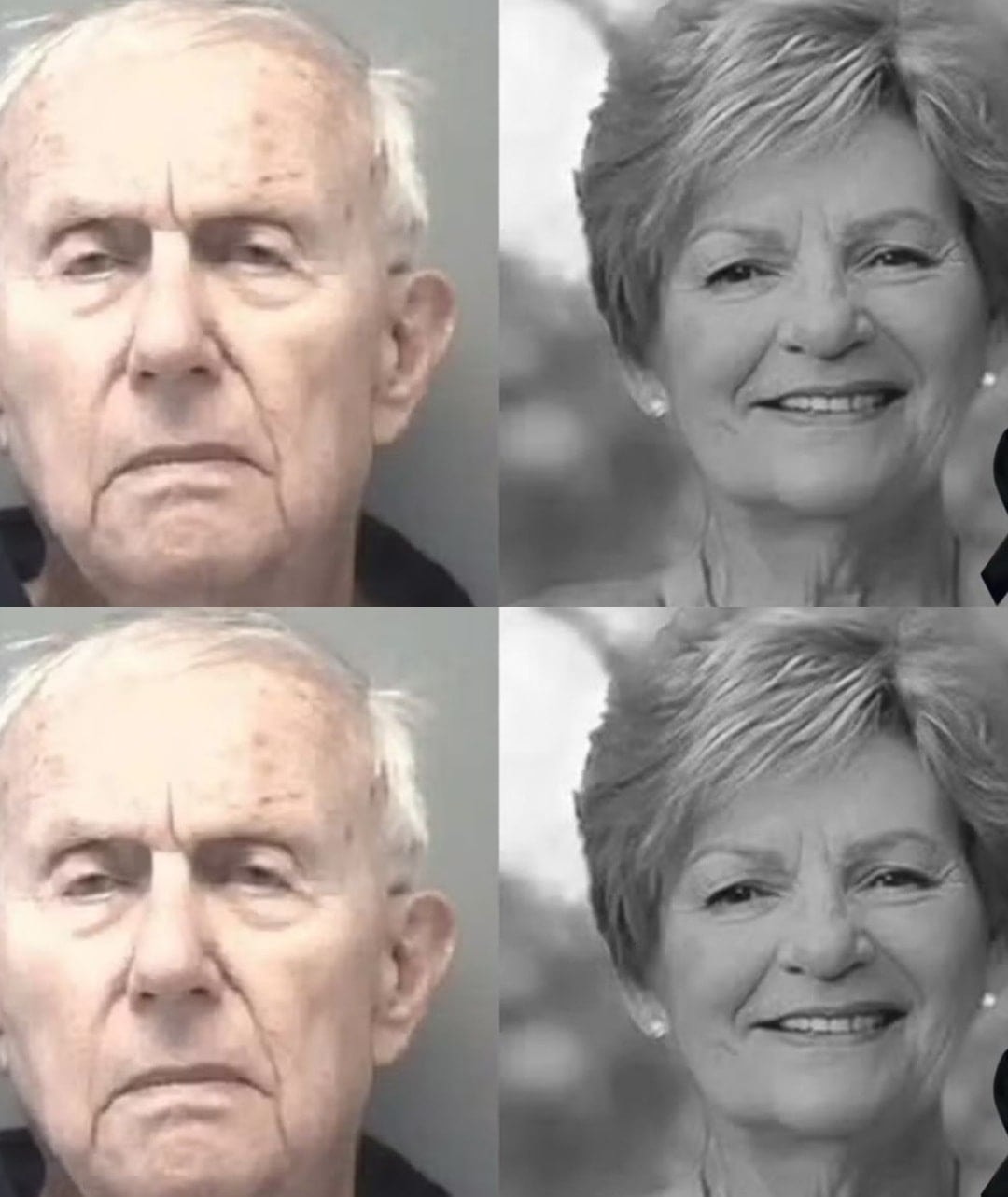Authorities are currently delving deeper into a heart-wrenching and complex case that has drawn national attention — one involving a 93-year-old man and his ailing wife. What began as a quiet, private tragedy inside a long-time marriage has now become the focus of both legal and ethical discussions about love, duty, and the heavy emotional cost of caregiving in old age.
According to preliminary findings, the elderly man reportedly told investigators that his actions were not driven by anger or neglect, but by desperation and deep compassion. He allegedly claimed that his wife, who had been battling severe and chronic health problems for years, had frequently expressed a wish to end her suffering. Those words, investigators say, appear to have weighed heavily on him — a husband torn between his devotion and his inability to watch the person he loved most continue to deteriorate.
For neighbors and acquaintances, the news came as a profound shock. The couple had lived in the same neighborhood for decades, known for their quiet routine — tending to their small garden, sitting together on the porch during summer evenings, and exchanging kind words with passersby. “They were the definition of devotion,” one neighbor told reporters. “You’d always see them together, hand in hand, even in their nineties.” The community now finds itself grieving not only the event but also the loss of a love story that once seemed unbreakable.
Local authorities have confirmed that the investigation remains active and sensitive. Detectives, medical examiners, and forensic specialists are working to reconstruct the full context of the man’s statements, while ensuring due process and compassion are balanced in every step of the inquiry. Mental health professionals — including psychologists and geriatric social workers — have been brought in to evaluate the emotional state of the individuals involved, seeking to understand the psychological burden that prolonged illness and isolation can place on elderly caregivers.
Experts say this case is far from isolated. It has shed light on a growing issue faced by aging couples around the world — the intersection of love, suffering, and moral conflict when illness dominates the final chapters of life. Many elderly partners, particularly those living without strong family support, struggle with feelings of helplessness and burnout as they watch their spouses decline. In some cases, this emotional strain can lead to tragic decisions born from compassion rather than malice.
In the wake of the incident, advocacy groups for seniors and mental health organizations have renewed calls for better support systems. They argue that communities need to provide easier access to counseling, palliative care, and respite services — lifelines that can prevent isolation and despair. “No one should have to face such pain alone,” said one elder-care specialist. “Love should not become a burden, and compassion should never have to take such a tragic form.”
As the investigation unfolds, one thing remains clear: this is not merely a criminal inquiry but a painful human story — a reminder of the vulnerability that comes with aging, and of the quiet, often invisible suffering that can accompany lifelong love in its final stages. Society now faces a difficult question — how to better protect and support those who have spent a lifetime caring for others, before desperation turns devotion into tragedy.
